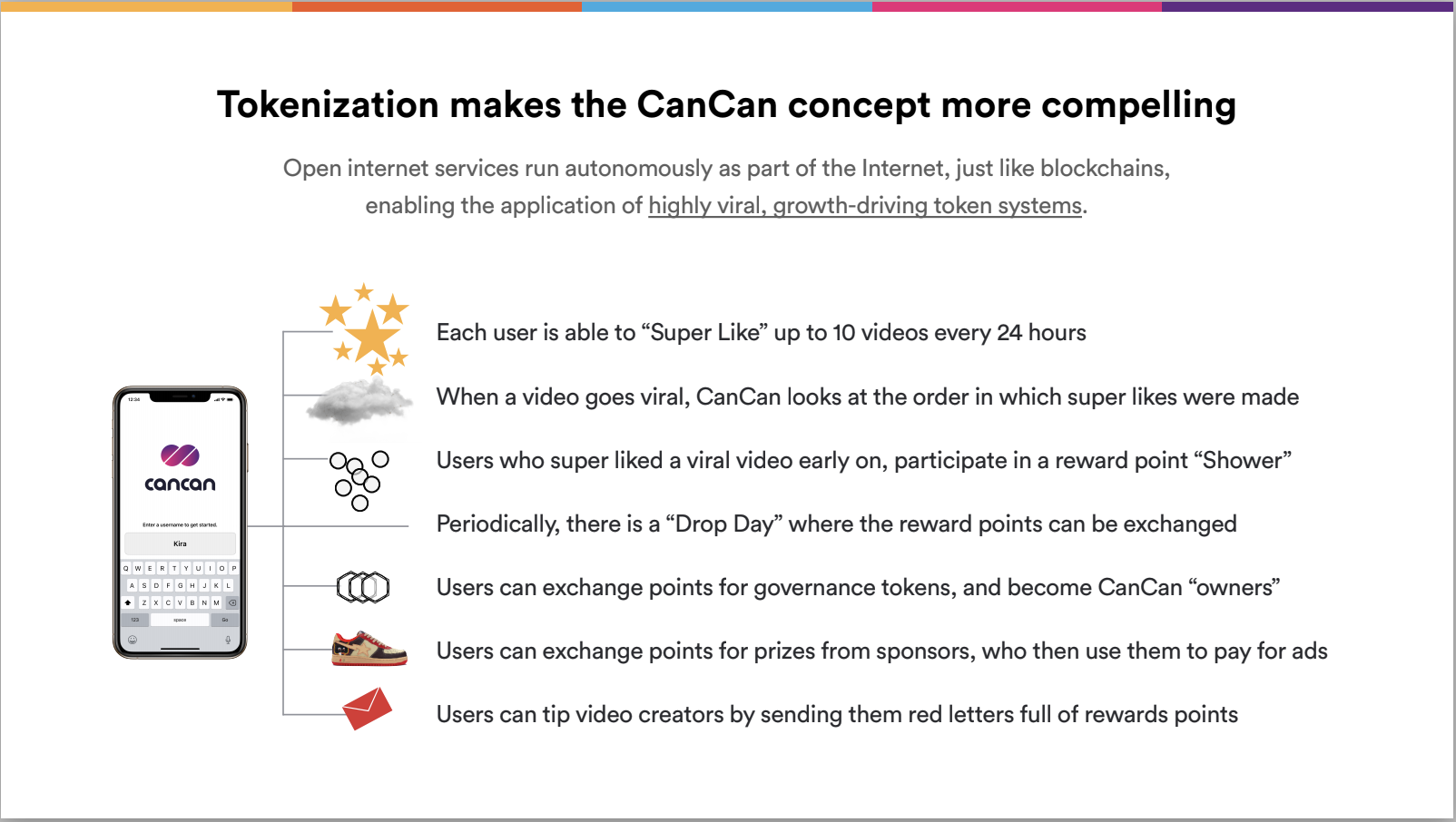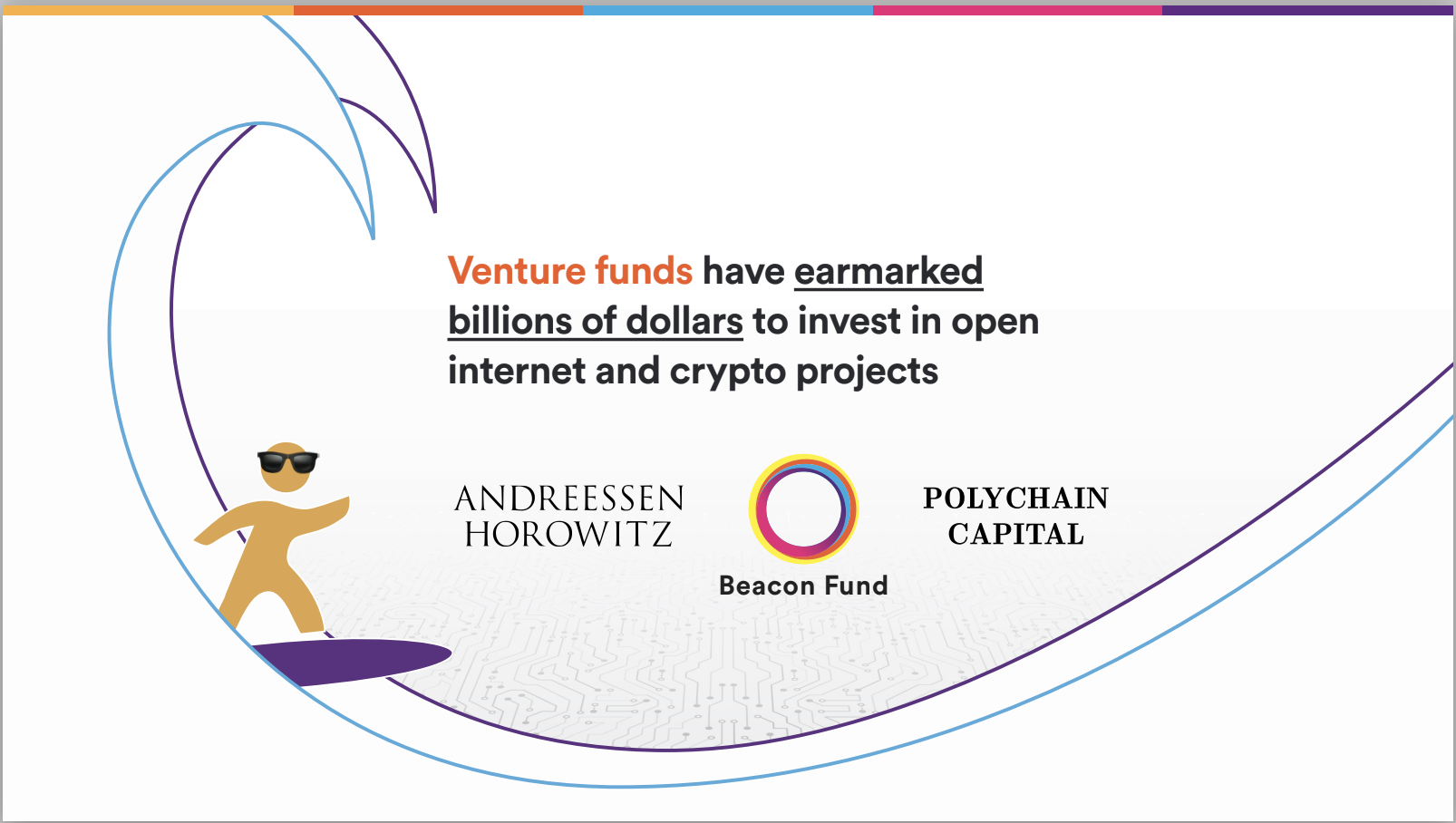Annotated by Patrice Greanville
The world's [genuine] left is one breath away from being censored out of existence by Big Tech. It is therefore urgent to find powerful alternative mass communications platforms immune to persecution by the reigning oligarchy. Will "The Internet Computer" fill that mission? |
Click on the images for best resolution.
For a long time now I've been increasingly concerned about the monopolisation of the Internet's biggest and most useful services —from search engines to mass communications platforms (social media), the new global "public squares". In 2021, congruent with the arrival of the Joe Biden coalition to the White House we see that the US government, always powerfully infiltrated and influenced by plutocrats, is now clearly entering a dangerous phase of tight integration with Big Tech, creating the conditions for a de facto "friendly fascist" regime. The first symptom of this new era is the rapidly spreading "paternalistic" censorship of anyone or anything contravening the official narrative promulgated by the state-certified media and political mouthpieces. The denial of access to all dissident opinion to the mass mind, historically controlled by the corporate legacy media, and now by a continuum that spans the legacy media and the digital app platforms everyone uses— Facebook, Instagram, YouTube, Twitter, and so on—is making the task of building democracy impossible. I say "building democracy" and not "rebuilding democracy" because I believe the US never had a true democracy in place, not even under FDR, only various forms of plutocratic power garbed in the rituals of democracy, the whole show expertly wrapped in the best propaganda that money can buy.
As a result of this coordinated attack, and despite its Constitutional protections, free speech in the US, never as strong as we would like but now practically moribund due to the liberals' astonishing confusion, legendary stupidity, and repeated betrayals, needs to be desperately re-energised through the creation of alternative digital platforms, partly a technical question, and the concurrent development of political parties free from oligarchic control. Of course, new anti-establishment parties on the US electoral scene will be crippled unless Americans also work to guarantee election integrity. Only this can help us defeat this techno-political form of "friendly fascism" now looming over America and much of the so-called "Western world". It's a long and complicated struggle, that's obvious, and one that may embroil several generations and the totality of the human race. Why? Because the disease is also global and entrenched in almost all latitudes. While sovereign anti-imperialist nations such as Russia, China, Iran, Venezuela, etc., are obviously aware of the danger to humanity of having the West go completely Orwellian, and have redoubled their efforts to strengthen and extend their younger soft power assets via the creation of new, countervailing global media and news services (i.e., Telesur, RT.com, PressTV, CGTN, Xinhua, etc.) and a highly promising original ecosystem of competing hardware and apps (i.e., Tik Tok, Huawei, WeChat) the West, led by the US, still enjoys a huge lead, especially in the global cultural arena. Quite frankly nothing yet in the non-imperialist sphere can rival the influence of Hollywood and, in general, Western media, in their ability to capture and deform the minds of people—especially the young—including many already living behind media "firewalls", such as China.
Recently, a group of computer scientists, developers and entrepreneurs gathered around the DFINITY initiative, sensing that the tyrannical regime exercised by the Big Tech giants is opening an opportunity for those who might offer a more genuine open and politically free digital ecosystem, has been working to launch a new type of digital platform based on blockchain technology. Since I am no computer geek, and digital questions of this nature are usually well beyond my ken, I can't vouch at this point for the substance or actual potential of this new option, or whether it will replace Facebook, YouTube, Twitter and the rest of the current monopoly gang, but I sure wish it a lot of success. The little I know about blockchain is terribly exciting. I say this realizing that the new platform—so far populated by folks who seem to me to be part of the same Western digital culture—may eventually succumb to the same ideological and political values (capitalism, libertarianism, imperialism, proto-fascism, etc.) that doomed the first generation of internet apps. Indeed, a lot of the lingo used in DFINITY's presentations sounds like the stuff we normally encounter in Wall Street "Red Herring" prospectuses, dropping words like "investors", "entrepreneurs", and so forth, all of which is certainly the kind of paradigm humanity needs to get away from, and not dive right back in, with a new technological fix. Let's hope it does not. The future of humanity and the survival of much of this planet depends on a completely liberated Internet.—PG
Part 1
forbes
Microsoft, Starbucks, Coca-Cola, and Unilever are among the major corporates that have halted advertising on Facebook, wiping some $60 billion worth of value from the company's stock and piling pressure on Facebook’s already scandal-weary investors.
Amid the growing Facebook ad boycott, Dfinity, a blockchain-based cloud computing platform that was valued at nearly $2 billion in 2018, has opened up its network to third party developers that it hopes will be able to "reboot the internet" and end big tech's "monopolization."
Instead of a single behemoth owning the personal information of its users, platforms like Dfinity could be used to build apps where the users own their own information and can profit from it.
"Open versions of the most popular mega-applications will replace the most popular applications of today," said Dominic Williams, founder of Dfinity, which is aiming to make its network available to the public in the fourth quarter of 2020.
Dfinity has built an open alternative to video sharing app TikTok called CanCan that it claims has been built with less than 1,000 lines of code—compared to Facebook's 62 million lines of code—to highlight what it calls the "simplicity of building the next generation of mega-applications" on its blockchain-based network.
Earlier this year, Dfinity demoed LinkedUp, an open alternative to professional networking site LinkedIn, at the World Economic Forum in Davos, running on independent data centers in Switzerland that the company is now extending to a "global network" of independent data centers across the U.S. and Europe.
"These applications are not controlled by a large firm, a government or any central entity. The users will be the custodians and the decision-makers instead of the current situation we know today. They will have a vote," said Williams.
Since raising $102 million in 2018 from investors including major venture capital firms Andreessen Horowitz and Polychain Capital, Dfinity has been building what it calls the "Internet Computer"—a decentralized and non-proprietary network that it wants to run a raft of next generation "Web3" applications.
Web3 is the idea that a third generation of the internet, following from the internet's first early version and then the Silicon Valley-controlled second generation, will allow users to control their data and allow transparent monetization.
"One of the really exciting things with blockchains is that we're now, as we call it, entering the Web3 era where we think you can get the best of the combination of kind of the advanced functionality of Web2, all the richness and reasons why we have people love Twitter and Facebook and Gmail and all these other kind of modern applications, but the openness of Web1, the lack of platform risk startups can really build on things," Andreessen Horowitz's Chris Dixon said in a statement.
Platform risk is a developer term for the risk associated with building an app on another company's platform—the platform could disappear or its owner might change the rules.
"It's a huge, huge issue ... and my view is it really stifles innovation, it stifles startups," said Dixon, who thinks that Dfinity's Internet Computer could play a similar role that the launch of the iPhone did in 2007, opening up the possibilities of a new, less controlled ecosystem.

Dfinity has developed an open version of video-sharing app TikTok to demonstrate what it calls the "simplicity" of developing apps on its decentralized network.
As the likes of Facebook, Google and Amazon have grown and taken over the internet, platform risk has increased dramatically.
Early blockchain-enabled social media companies are already rushing to fill the demand, including Minds, now boasting 2.5 million registered users, Block.one, the company behind the EOS blockchain, and Revolution Populi, spearheaded by Yale professor David Gelernter and Goldman Sachs GSBD +2.7% veteran Rob Rosenthal.
"One of the biggest problems emerging in technology is the monopolization of the internet by big tech—companies that have consolidated near-total control over our technologies," said Williams.
"They collect vast amounts of information about us that they sell for profit and leverage to amass greater market share, and acquire or bulldoze rivals at an alarming rate."
"The Internet Computer provides a means to reboot the internet, creating a public alternative to proprietary cloud infrastructure. It will empower the next-generation of developers and entrepreneurs to take on big tech with open internet services. It aims to bring the internet back to its free and open roots—not dominated by a handful of corporations."
 I am a journalist with significant experience covering technology, finance, economics, and business around the world. As the founding editor of Verdict.co.uk I reported on how technology is changing business, political trends, and the latest culture and lifestyle. I have covered the rise of bitcoin and cryptocurrency since 2012 and have charted its emergence as a niche technology into the greatest threat to the established financial system the world has ever seen and the most important new technology since the internet itself. I have worked and written for CityAM, the Financial Times, and the New Statesman, amongst others. Follow me on Twitter @billybambrough or email me on billy@billybambrough.com. Disclosure: I occasionally hold some small amount of bitcoin and other cryptocurrencies.
I am a journalist with significant experience covering technology, finance, economics, and business around the world. As the founding editor of Verdict.co.uk I reported on how technology is changing business, political trends, and the latest culture and lifestyle. I have covered the rise of bitcoin and cryptocurrency since 2012 and have charted its emergence as a niche technology into the greatest threat to the established financial system the world has ever seen and the most important new technology since the internet itself. I have worked and written for CityAM, the Financial Times, and the New Statesman, amongst others. Follow me on Twitter @billybambrough or email me on billy@billybambrough.com. Disclosure: I occasionally hold some small amount of bitcoin and other cryptocurrencies. Part 2
Its backers enthusiastically call it a true "paradigm shift". The "Third great innovation in blockchain technology, after cryptocurrency and smart contracts..." Is this boosterism or simply the accurate description of a revolutionary breakthrough with enormous geopolitical implications?
Below some of the claims, descriptors, and glimpses of what these folks are talking about. For full details, visit their main page at https://dfinity.org/ For a PDF overview, click here.
 |
  |
  |
  |
  |
  |
 |
 Below some of the invitations and claims extended to the digital community. This is definitely for geeks, developers, that is, but am sure some of our readers will be interested and probably decipher it. (The whole section can be found here.) As I said earlier, I am a bit concerned about the true nature of this new animal. A great deal of the terminology sounds like the kind of boosterist language we find in countless Wall Street Red Herrings. If this is an appeal to moral, idealistic people who march to a different—non-capitalist—tune, this is certainly liable to confuse many and probably put some off, right a the start. Still, if the architecture of this Internet technology is already here, some, including big fish, people who are by nature financial sharks, and millions of misguided small guys who idolize the teachings of Ayn Rand, will seek to make oodles of money with it, and probably shut off the technology's "open" character. We'll see what happens. Below some of the invitations and claims extended to the digital community. This is definitely for geeks, developers, that is, but am sure some of our readers will be interested and probably decipher it. (The whole section can be found here.) As I said earlier, I am a bit concerned about the true nature of this new animal. A great deal of the terminology sounds like the kind of boosterist language we find in countless Wall Street Red Herrings. If this is an appeal to moral, idealistic people who march to a different—non-capitalist—tune, this is certainly liable to confuse many and probably put some off, right a the start. Still, if the architecture of this Internet technology is already here, some, including big fish, people who are by nature financial sharks, and millions of misguided small guys who idolize the teachings of Ayn Rand, will seek to make oodles of money with it, and probably shut off the technology's "open" character. We'll see what happens. |
The views expressed are solely those of the author and may or may not reflect those of The Greanville Post
YOU ARE FREE TO REPRODUCE THIS ARTICLE PROVIDED YOU GIVE PROPER CREDIT TO THE GREANVILLE POST
VIA A BACK LIVE LINK.
























